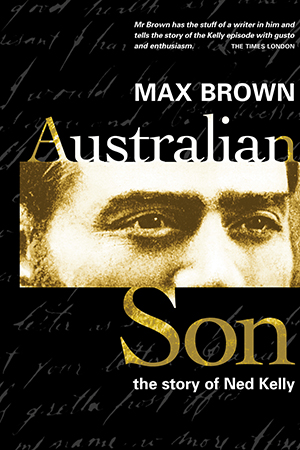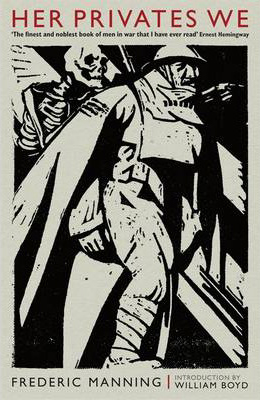Chester Eagle: author, editor, publisher
Over the past forty years author, editor and publisher, Chester Eagle has had the pleasure of working with some of Australia’s most influential publishing figures, including Max Brown, Vane Lindesay, Diana Gribble, and Hilary McPhee. Born in the 1930s, young Chester attended Finley State School for six years, then had another six in Melbourne. Chester studied for four years at Melbourne University, then accepted a teaching appointment in the Victorian town of Bairnsdale. It was there that Chester befriended the writer-extraordinaire Hal Porter, and decided that writing was to be the centre of his life. After he married, Chester moved back to Melbourne where he continued teaching at Preston TAFE College (now Melbourne Polytechnic) until his retirement at age fifty-five. He was now able to at last devote himself to writing full-time.
When asked what fascinates or draws him to the world of books, Chester replied, ‘I think language is one of the most important human functions. We couldn’t think very well without language; we’d be left reacting to external stimuli, whereas, with language turned into thought, we can take charge of our lives to at least some extent.’ Chester continued, ‘Language is the most democratic thing, linking all types and all classes. We all use the same language … or, if we’re from different parts of the world, we don’t use the same language, which puts us in the fascinating position of having to work hard to understand each other, and sometimes we can and do. Once having grasped the importance of language, it’s only another step to wanting to see it used richly, fully, and surpassingly well. This is where writers are supposed to lead!’
Having had the a long association within the Australian publishing scene, as both a writer and editor, has given Chester a unique insight into the current health of the industry. Said Chester, ‘Publishing lags in importance far behind television and indeed most other aspects of the media. Yet publishing will always be important because it’s where new ideas of significance usually get their first airing. Commercial publishing, however, is lagging in another way. Like morning newspapers, it’s a product of the pre-electronic age and its time is passing. I see little sign that commercial publishers realise this, though I may well be wrong. So my answer would be that commercial publishing is far advanced into old age but still thinks it’s a nice virile thirty-five or thereabouts.’
In 1984 Chester published his first novel under his own imprint, Trojan Press. In 2006 he launched TrojanPress.com.au where readers can download free of charge numerous novels, memoirs and librettos in PDF format. While many at his age may have trouble tuning a radio, Chester has embraced this emerging technology with an exuberance rarely seen in people half his age. ‘It’s the most prominent and visible form of the future that’s currently available,’ said Chester. ‘It’s a major feature of a revolution at least as important as the invention of printing in the 15th century. Printing changed the world and the Internet is part of a change at least as big which is happening now. It’s beyond most of us to imagine where the electronic revolution will take us, so the best we can do is to keep watching and keep speculating.’
 Chester began working with Network Creative Services in 2005, offering his editorial expertise in the rerelease of Max Brown’s Australian Son – the story of Ned Kelly. Mindful of the impact the original book had on the Australian publishing landscape, Chester was keen to see Max’s words retain their significance. ‘I loved working on Max’s book because I loved Max, he’d had a huge influence on me when I was a young man.’ said Chester. When asked about the process involved in editing such a work Chester replied, ‘Now that he (Max) was dead it was my job, undertaken with commitment and passion, to bring his revision of that book to the public. I took it for granted that Max, a really fine writer, knew exactly what he was doing when he wrote things down, so my job (a) was a matter of getting together the text that he wanted to put before the public – no easy matter, this, I can tell you – and then (b) ensuring that the text lived up to Max’s expectations of it.’ Luckily for all concerned Chester, by this stage, knew Max well and had made many suggestions to him, down the years. Said Chester, ‘Because I think I am/was a little more conscious of the surface effects of prose than he was. This meant, however, that I mustn’t annoy his spirit hanging over my shoulder by doing anything that would have displeased him. This may sound like a conflict inside my mind but it really wasn’t because of the great love I felt for Max, then and now.’
Chester began working with Network Creative Services in 2005, offering his editorial expertise in the rerelease of Max Brown’s Australian Son – the story of Ned Kelly. Mindful of the impact the original book had on the Australian publishing landscape, Chester was keen to see Max’s words retain their significance. ‘I loved working on Max’s book because I loved Max, he’d had a huge influence on me when I was a young man.’ said Chester. When asked about the process involved in editing such a work Chester replied, ‘Now that he (Max) was dead it was my job, undertaken with commitment and passion, to bring his revision of that book to the public. I took it for granted that Max, a really fine writer, knew exactly what he was doing when he wrote things down, so my job (a) was a matter of getting together the text that he wanted to put before the public – no easy matter, this, I can tell you – and then (b) ensuring that the text lived up to Max’s expectations of it.’ Luckily for all concerned Chester, by this stage, knew Max well and had made many suggestions to him, down the years. Said Chester, ‘Because I think I am/was a little more conscious of the surface effects of prose than he was. This meant, however, that I mustn’t annoy his spirit hanging over my shoulder by doing anything that would have displeased him. This may sound like a conflict inside my mind but it really wasn’t because of the great love I felt for Max, then and now.’
A couple of years later Network Creative Services engaged Chester’s services in editing an entirely different manuscript. Marcie Jones’s book Runs in the Blood was a challenge because it was essentially ‘a lot of talk written down’. When asked his thoughts on the project Chester replied, ‘Marcie Jones isn’t/wasn’t a writer at all, but a talker (and singer) onto paper. Her book was going to appear with lots of pics, lots and lots of “presentation”, so I saw myself as having the contradictory jobs of making her prose look like something you would want to READ, while at the same time preserving her own voice, that of a very spontaneous chatterer on paper.’
Chester continued, ‘I went through the entire text several times, each time making only those alterations which I felt sure helped achieve both those contradictory aims mentioned above. Only in the last couple of edits, when I thought I was beginning to see the book clearly, did I move to a slightly more forceful style of editing. I haven’t yet met Marcie so I don’t yet know how she feels about my editing. I feel I did her a considerable service!’
 Not wishing Chester to relive too many celebrity ‘tell all’ biographies, the question was raised regarding what type of book really appealed to him. Chester responded by saying, ‘A book that shows me new ways to think, or feel, or both. This side of Shakespeare, there have been a double-handful of them in my lifetime and I cherish them profoundly. They are my models and my standard. When I put down Her Privates We by Frederic Manning, I knew I was no longer the same person. The book had changed me.’ Even to touch the book, today, Chester is reminded of what happened when he first encountered it, ‘Books have this power … or they can have it, they might have it. The book we pick up today may do this for us, and it will probably be unexpected when it happens!’ Chester believes every book is the heart-felt work of someone and must be respected. With this in mind he feels it’s important to get into the author’s mindset when editing their work.
Not wishing Chester to relive too many celebrity ‘tell all’ biographies, the question was raised regarding what type of book really appealed to him. Chester responded by saying, ‘A book that shows me new ways to think, or feel, or both. This side of Shakespeare, there have been a double-handful of them in my lifetime and I cherish them profoundly. They are my models and my standard. When I put down Her Privates We by Frederic Manning, I knew I was no longer the same person. The book had changed me.’ Even to touch the book, today, Chester is reminded of what happened when he first encountered it, ‘Books have this power … or they can have it, they might have it. The book we pick up today may do this for us, and it will probably be unexpected when it happens!’ Chester believes every book is the heart-felt work of someone and must be respected. With this in mind he feels it’s important to get into the author’s mindset when editing their work.
Remarked Chester, ‘If you don’t make a really large effort to see how the writer thinks, and therefore expresses him/herself, you can’t know when the writer is writing well, or poorly. The editor’s first, and frequently only, task is to assist in making clear what’s intended by the printing on the page.’ Chester made the point that you can’t ‘assist’ unless you are in tune with it yourself, stating, ‘This means, obviously, that editing writer A is not the same task as editing writer B – because they are different people, with different aims, abilities, et cetera.’ As an editor, Chester sees himself as the intermediary, representing both interests and trying to ensure that the required meeting of minds takes place.
Being ‘retired’ means Chester can choose which works he edits. However, the fundamental problem of staying motivated during long sessions still crops up. ‘I am a fast worker and I only work when I know that my mind is up to the job. If it’s not, I read, drink wine, listen to music, et cetera. So none of my editing sessions are very long, by the clock.’ He continued, ‘By the calendar, however, I am a very patient person and I don’t give up on a job until I have it finished to my satisfaction. If I’ve been engaged on a long burst of hard work, and it’s finished, I may go off for a few days to refresh myself.’ In short, his advice for any budding editor is that they should not let themselves get weary, saying, ‘You must feel fresh, and staying fresh is something we all have to find our own peculiarly personal way of doing.
Remaining in one particular industry for too long tends to make one cynical or, as author Ian Jones puts it, ‘Old and grumpy’, however, with Chester’s new found interest in online publishing the future continues to deliver wondrous things. Remarks Chester, ‘At the age of 75 I don’t expect to change or develop very much. I can only hope for the health and mental stability to go on being useful for some time longer. How much longer? This is easy. I feel fine this morning, and hope to feel as good tomorrow. The day after is out of sight.’
Bibliography
Trojan Press, TrojanPress.com.au. Accessed 23 March 2009.
Chester Eagle interview, Ivanhoe, Victoria. Conducted 25 March 2009.
